Solo Sister Cycles Saudi Arabia: Riding Against Stereotypes!
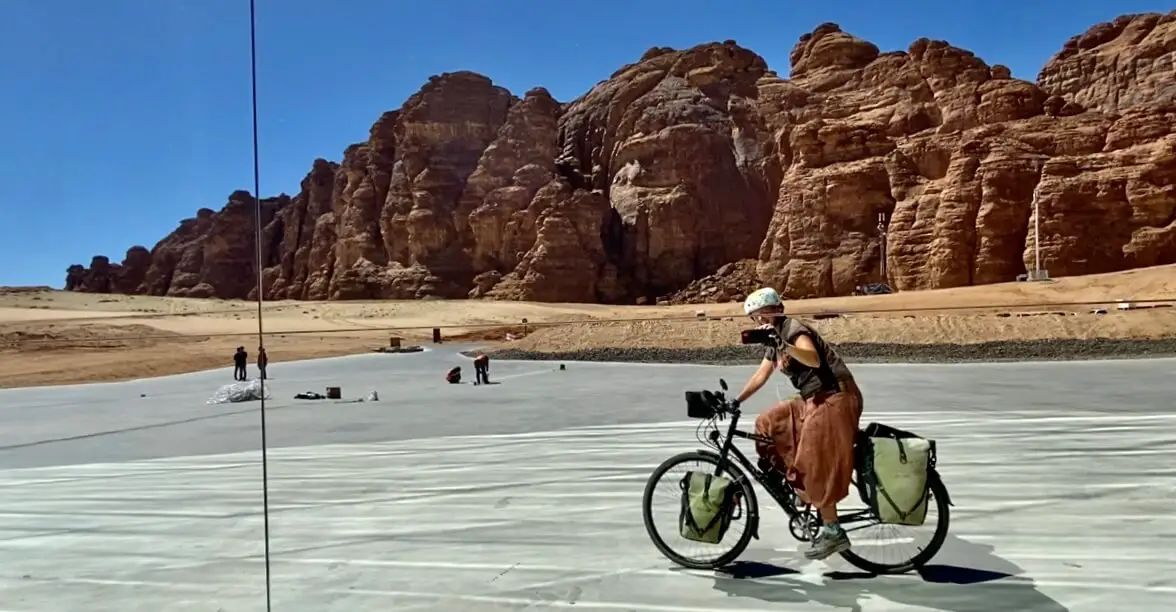
As an affiliate, we may earn from qualifying purchases. We get commissions for purchases made through links on this website. You can read more on our Affiliate Disclaimer here.
Solo Sister Cycles Saudi Arabia! Who’s the Solo sister? If you’re following cycling personalities who are now travelling the world on their bike you would probably know her!
If you don’t, no worries you will get to know her slowly by reading this whole article! Let’s get to know about her Saudi Arabian experience first!
Solo Sister Cycles Saudi Arabia: A Journey of Self-Discovery and Empowerment
SAUDI ARABIA is probably not top of most people’s travel wish lists, but if Mohammed Bin Salman’s ambitious Vision 2030 project comes to fruition the kingdom will be among the top 10 most visited countries by 2030.
Planning the Journey
- Research and Route Planning:
- Key Destinations: Riyadh, Jeddah, Al Ula, The Edge of the World, Madain Saleh, the Empty Quarter, and Taif.
- Route Considerations: Plan routes that offer a mix of urban exploration, historical sites, and natural beauty. Use GPS and reliable maps for navigation.
- Visas and Permits:
- Tourist Visa: Obtain a tourist visa via the Saudi eVisa platform. Ensure all required documents are in order.
- Cycling Permits: Verify if special permits are needed for cycling in specific regions, particularly historical or restricted areas.
- Safety Precautions:
- Local Laws and Customs: Understand and respect Saudi Arabia’s laws, especially dress codes and social norms.
- Emergency Contacts: Maintain a list of local emergency contacts, including hospitals, police stations, and embassies.
Gear and Preparation
- Bicycles and Equipment:
- Bike Type: Opt for durable touring bikes or mountain bikes suitable for various terrains.
- Essential Gear: Helmets, repair kits, spare tires, first aid kits, GPS devices, and detailed maps.
- Clothing and Accessories:
- Appropriate Attire: Lightweight, breathable clothing that adheres to local customs (long sleeves and pants recommended).
- Hydration and Nutrition: Carry ample water and energy snacks. Plan for regular stops to replenish supplies.
Cultural Immersion
- Interacting with Locals:
- Language: Learn basic Arabic phrases to facilitate communication.
- Cultural Sensitivity: Respect local customs and traditions. Engage respectfully with locals, especially in rural areas.
- Exploring Historical Sites:
- Madain Saleh: Discover the ancient Nabatean city, a UNESCO World Heritage site.
- Al Ula: Marvel at the rock formations and archaeological sites.
- Experiencing Local Cuisine:
- Traditional Dishes: Sample Saudi dishes like Kabsa, Mutabbaq, and fresh dates.
- Local Markets: Visit souks and markets to experience local culture and cuisine.
Challenges and Rewards
- Physical and Mental Challenges:
- Weather Conditions: Prepare for extreme heat and occasional sandstorms. Plan rides during cooler parts of the day.
- Loneliness and Isolation: Support each other and stay connected with loved ones through regular check-ins.
- Personal Growth and Achievements:
- Overcoming Fears: Build resilience and confidence through solo travel and mutual support.
- Cultural Insights: Gain a deeper understanding of Saudi culture and traditions.
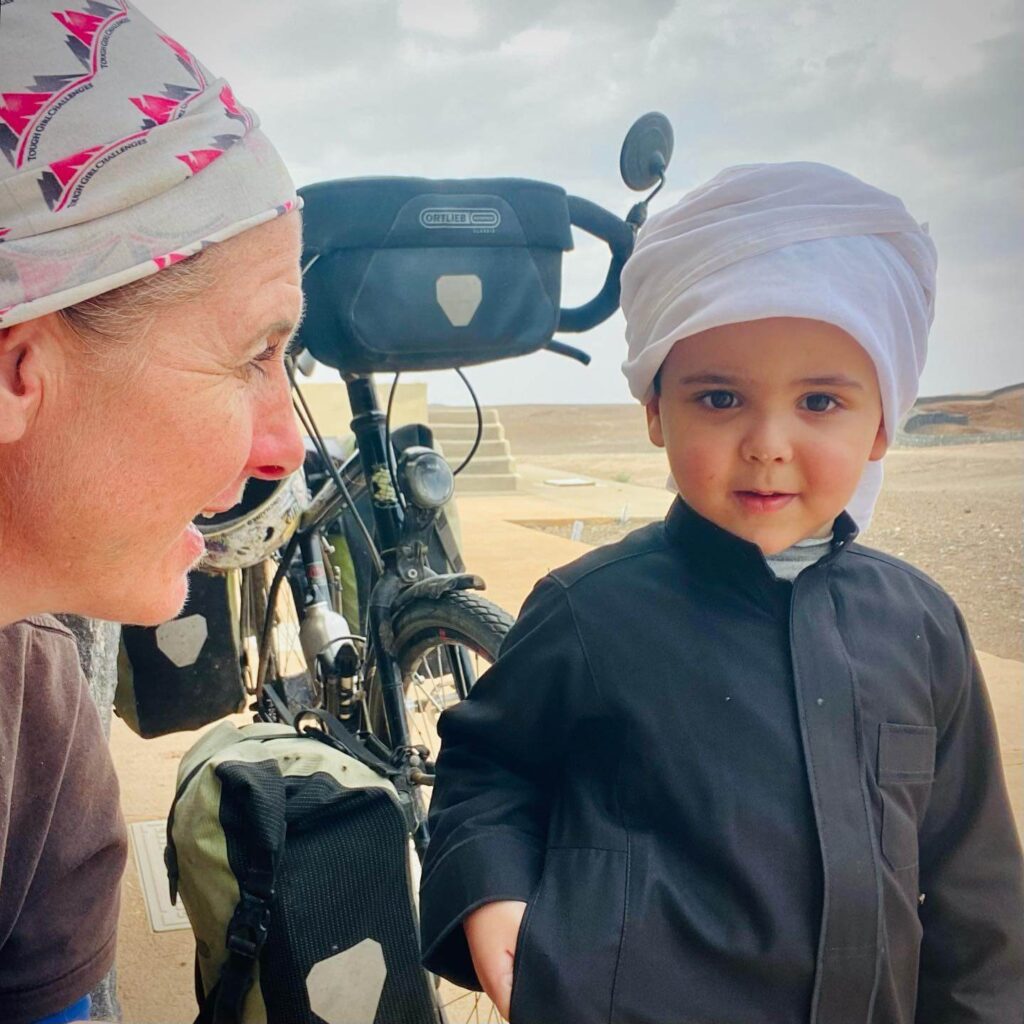
For a nation that as recently as 2018 didn’t so much as offer a tourist visa, this is a colossal undertaking.
Pilgrim numbers will be doing a lot of the heavy lifting to numerically compete with the likes of holiday heavyweights France, Turkey, Mexico & Thailand.
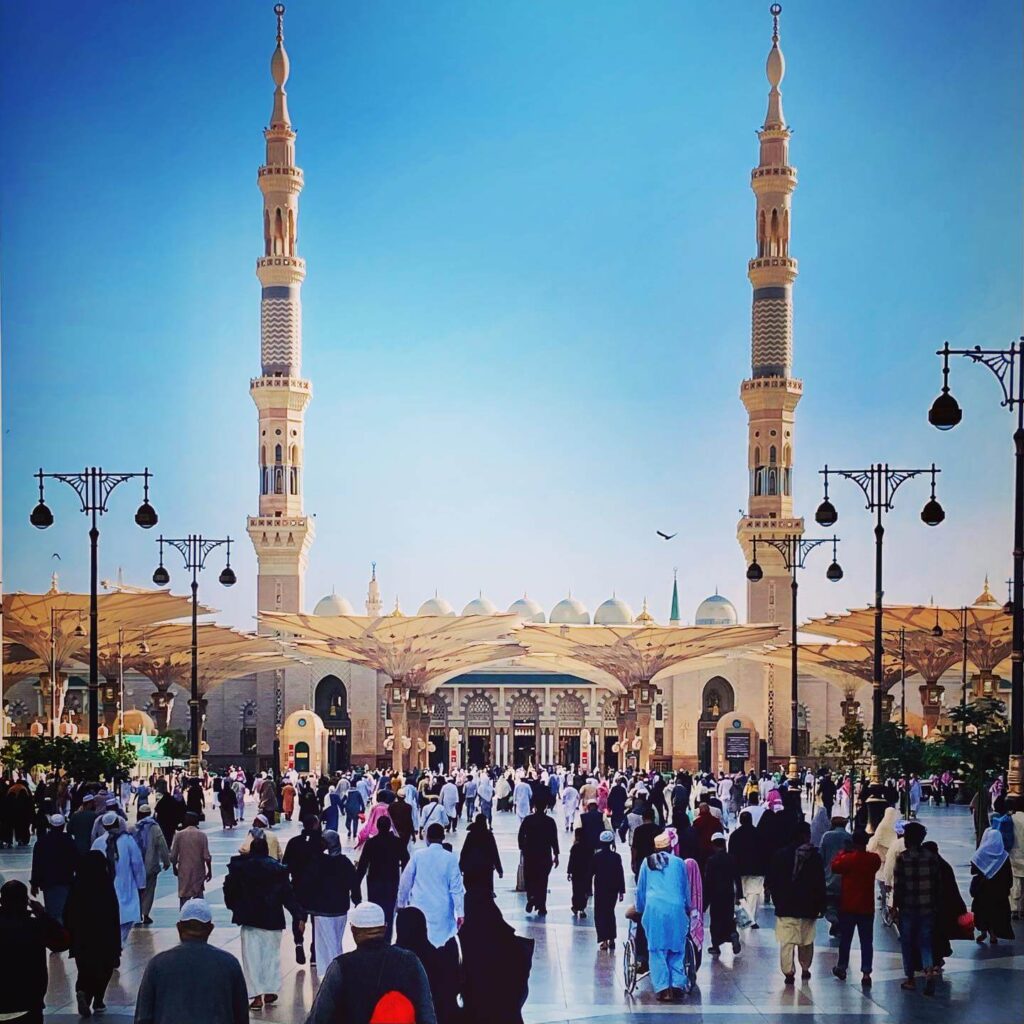
Undeterred, Saudi Arabia’s tourism development is already evident from pre-Islamic Al-Ula to the ‘city of the future’ Neom.
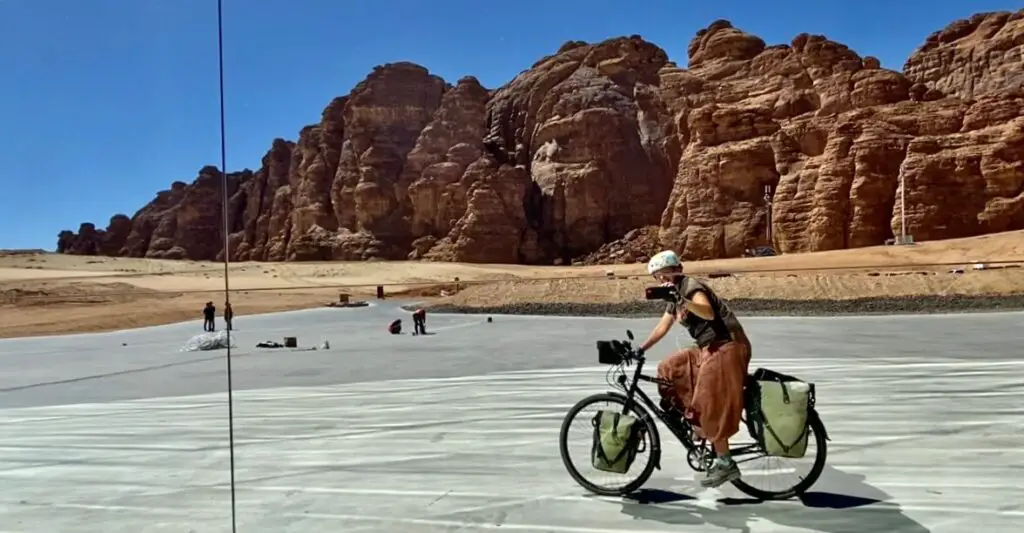
Three years ago whilst preparing to set out by bicycle from London to the Middle East I wrote to Saudi Tourism with questions about the dress code and if I – a solo female traveller – would be permitted to cycle freely within the country.
The reply was astonishing;
“you don’t need to wear an abaya, as long as you wear decent, loose-fitting clothes that cover your shoulders and knees, you are good to go!”
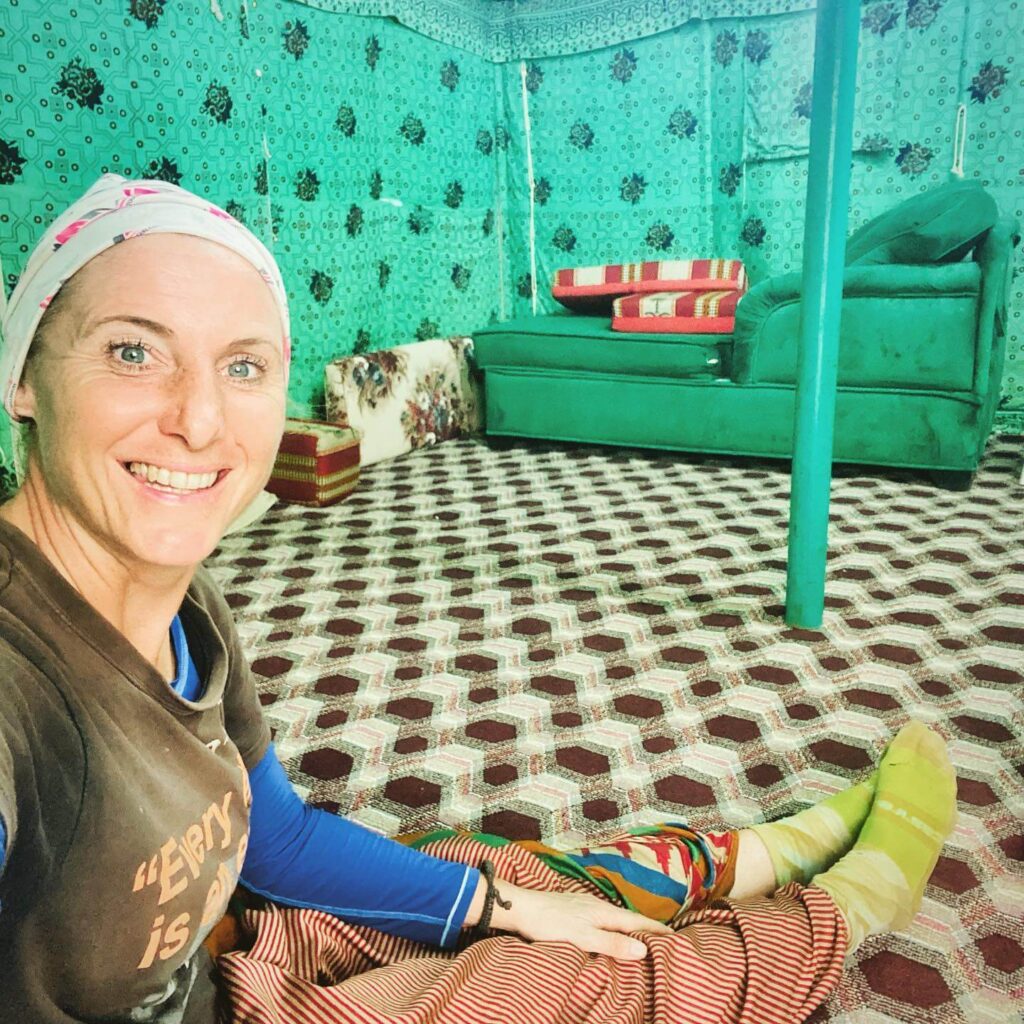
So, how is it to travel by bicycle through a land in which women have been permitted to drive for fewer than 5 years?
The answer will surprise you as much as it did me.
If I’m not the actual first solo woman to ride the full distance across Saudi Arabia then I’m certainly amongst the initial few. Consequently, there is a certain amount of trailblazing.
I’ve been mistaken for a man more than a couple of times, even straight out asking my gender.
More routinely I’m quizzed about marital status, whether I have kids, and of course the perennial favourite; “aren’t you scared?”
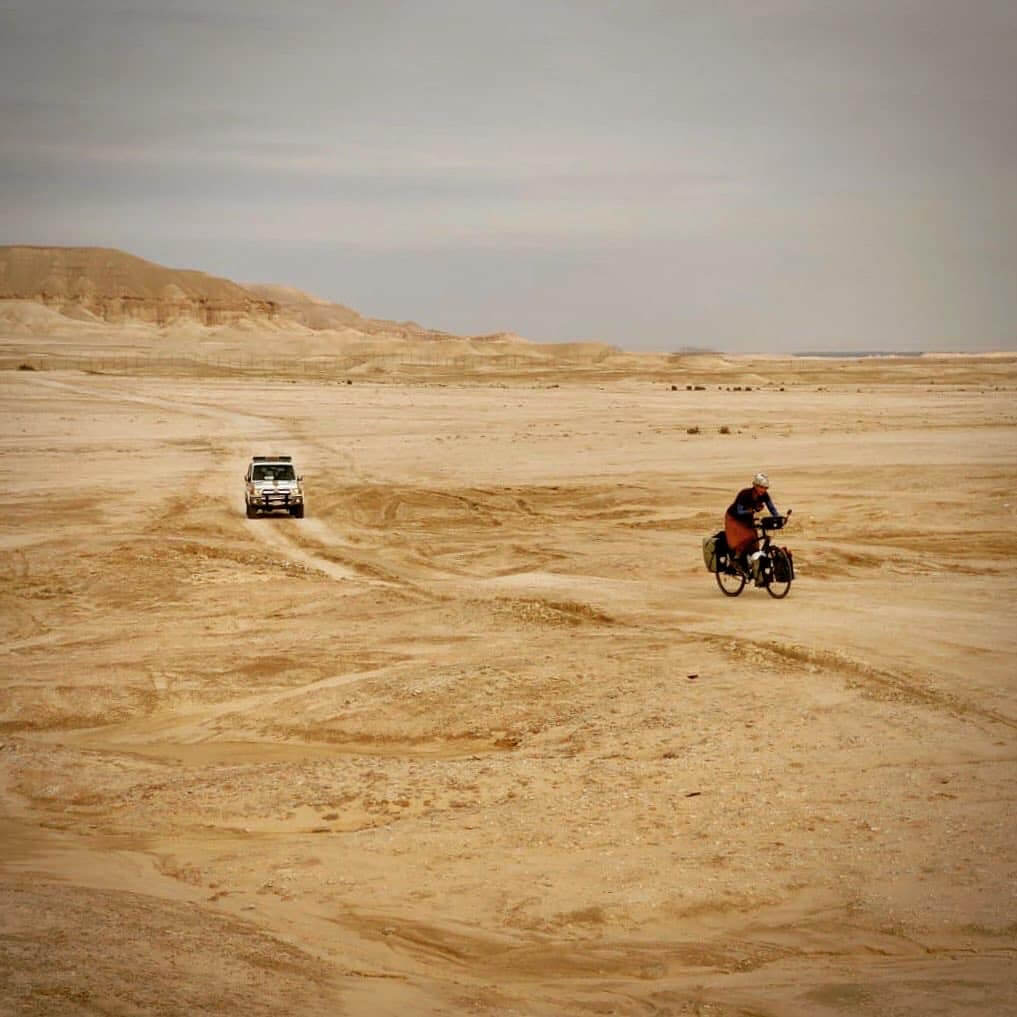
It’s an odd paradox that Saudis while readily acknowledging how exceptionally safe their country is, are simultaneously obsessed with foreigners’ safety and well-being in their land. Often to the detriment of enjoyment; a point I’ll come back to.
But it has meant that sleeping inside the women’s prayer rooms of remote highway mosques had been positively encouraged, reinforced by instructions to lock myself, and bike, safely inside overnight.
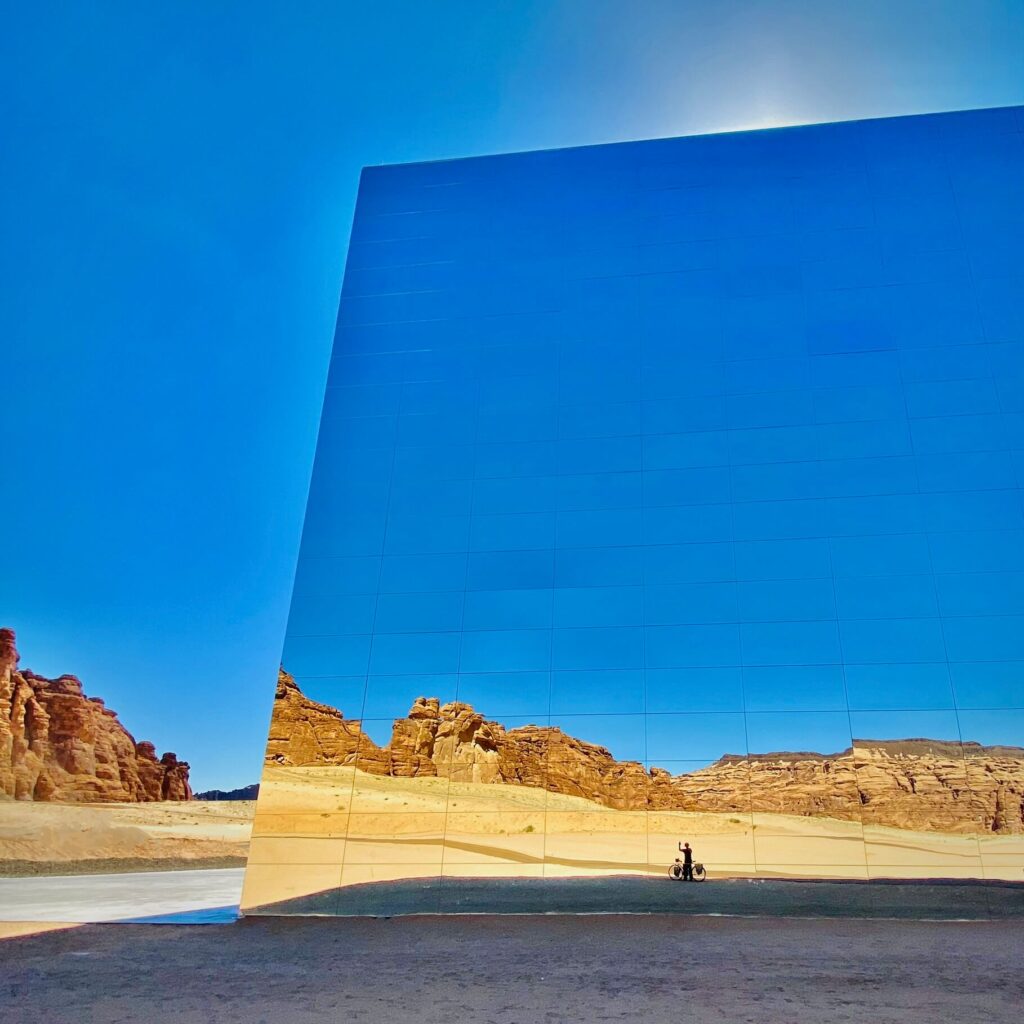
One of the many wonderful aspects of travel is having your preconceptions of a place turned upside down.
In Iran – a country I adore but in which I was harassed physically or verbally a couple of times a week – I received many well-meaning warnings about travelling alone in the Middle East.
Arab men it seems, have the reputation of being disrespectful – dangerous even – towards Western women. While nowhere is 100% safe and we should always exercise proper caution, I would like to set the record straight.
Since arriving in this part of the Arab world from Iran I’ve felt very comfortable wild camping just about anywhere.
The few times I’ve been bothered by unwanted male attention, it has been not by Arab men, but by one or two of the many South Asian migrant workers here.
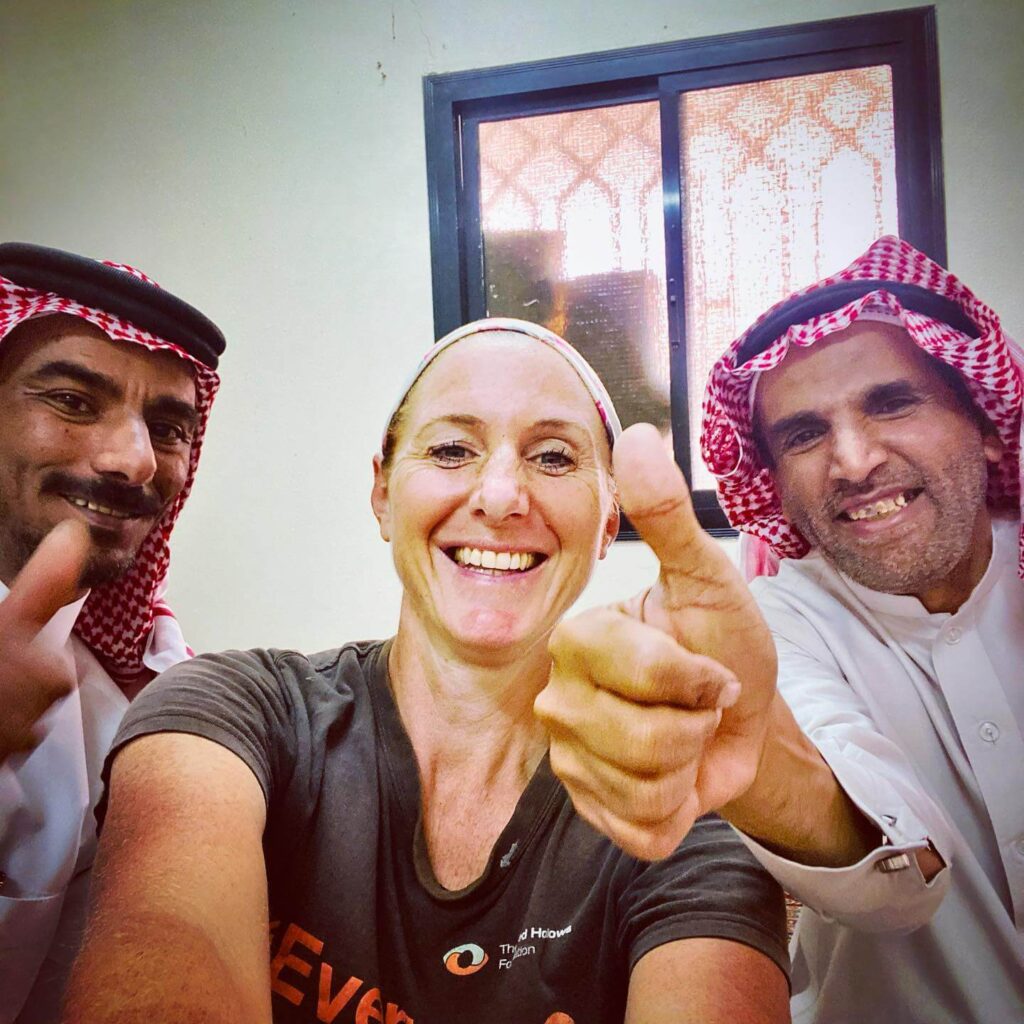
On one memorable occasion in Oman, a local man curious about the tent plonked down in his local wadi and drove over to investigate.
When I opened the fly revealing the occupant to be a solo woman he couldn’t get away fast enough, apologising profusely as he backed away.
In grocery stores where space is tight, there is no squeezing by the opposite sex. Men will exit the aisle to allow me to pass.
As a Brit precious of my personal space, I find this invisible forcefield around me very welcome. Male hands proffered to shake can be politely declined by putting my hand to my chest in greeting instead.
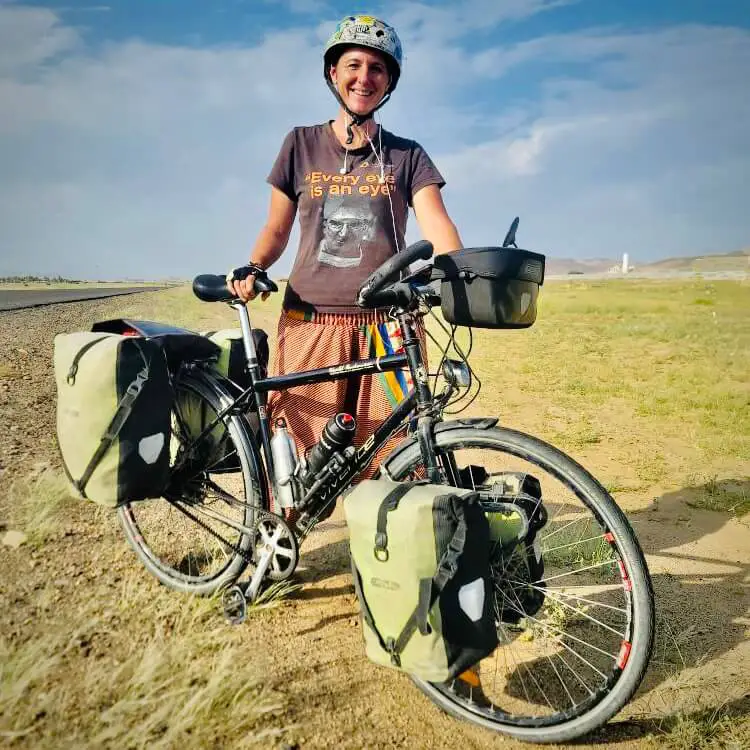
Another pleasant advantage of being female in the Middle East is that I rarely have to wait in line. Government offices, banks and such often have separate entrances for women allowing me to skip past all the queuing men.
Since it’s rare to find many women transacting in these places I’m often able to proceed directly to the window whilst 20 men wait in the adjacent room.
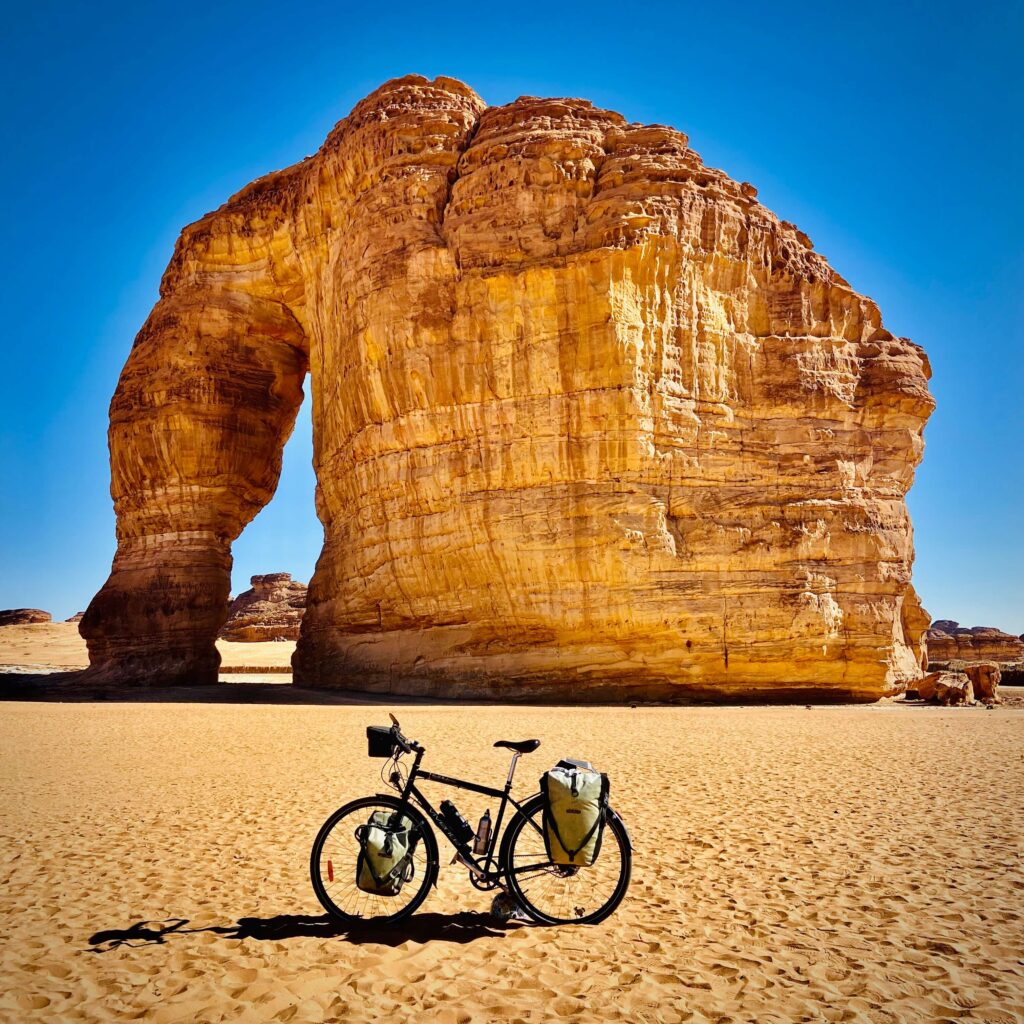
Besides these female-only spaces, as a solo European woman, I am approached by both men and women welcoming me and asking about my journey.
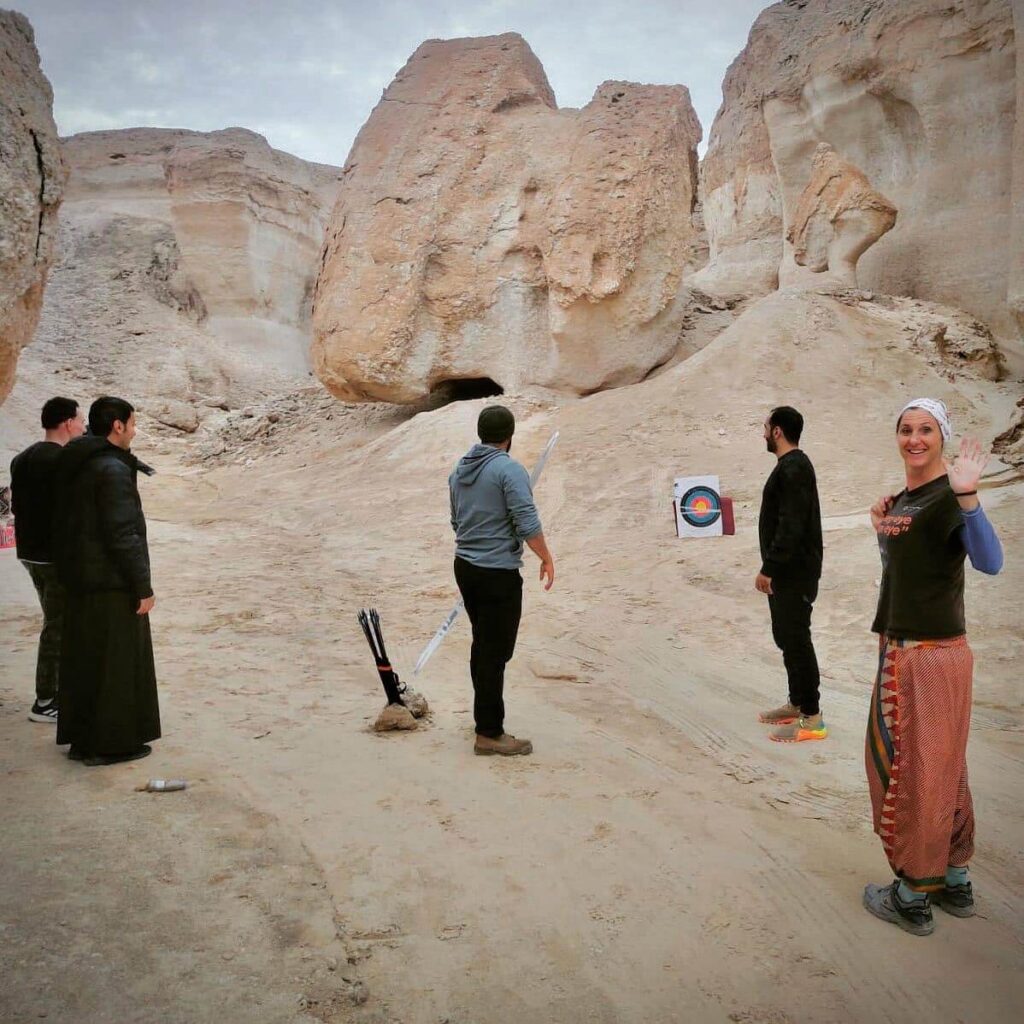
It is illegal in many parts of the Middle East including KSA to take and post photos without consent, but Saudis are also avid users of social media – Snapchat in particular – so my permission is often requested before my photo is taken.
(Men do still hang out of car windows Snapchatting me as they drive by, but mostly this filming is accompanied by a friendly wave or encouraging greeting).
As well as being able to converse with men in public I am also welcomed into homes where I’m shown to the women’s section.
Here in the sanctuary of their living rooms, Saudi women are free to reveal their faces to me, an experience I assume is not open to male travellers.
I would argue therefore that to be a solo female traveller in 2023 Saudi Arabia is not restrictive but in fact advantageous.
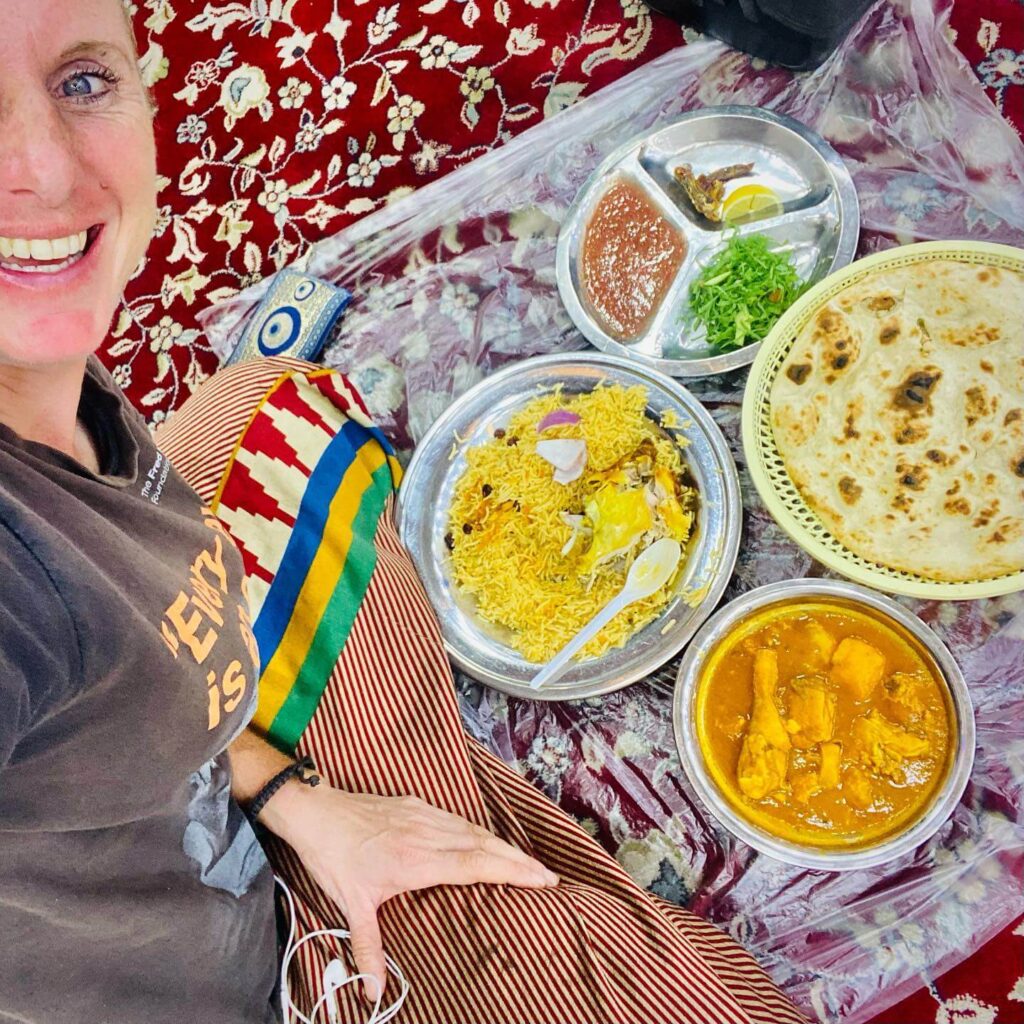
But, I can’t conclude by summarising my experience in the kingdom without mentioning the unsettling series of events resulting in my hiding in a hotel, hungry but too afraid to go out wishing I had the anonymity of a burka under which to hide.
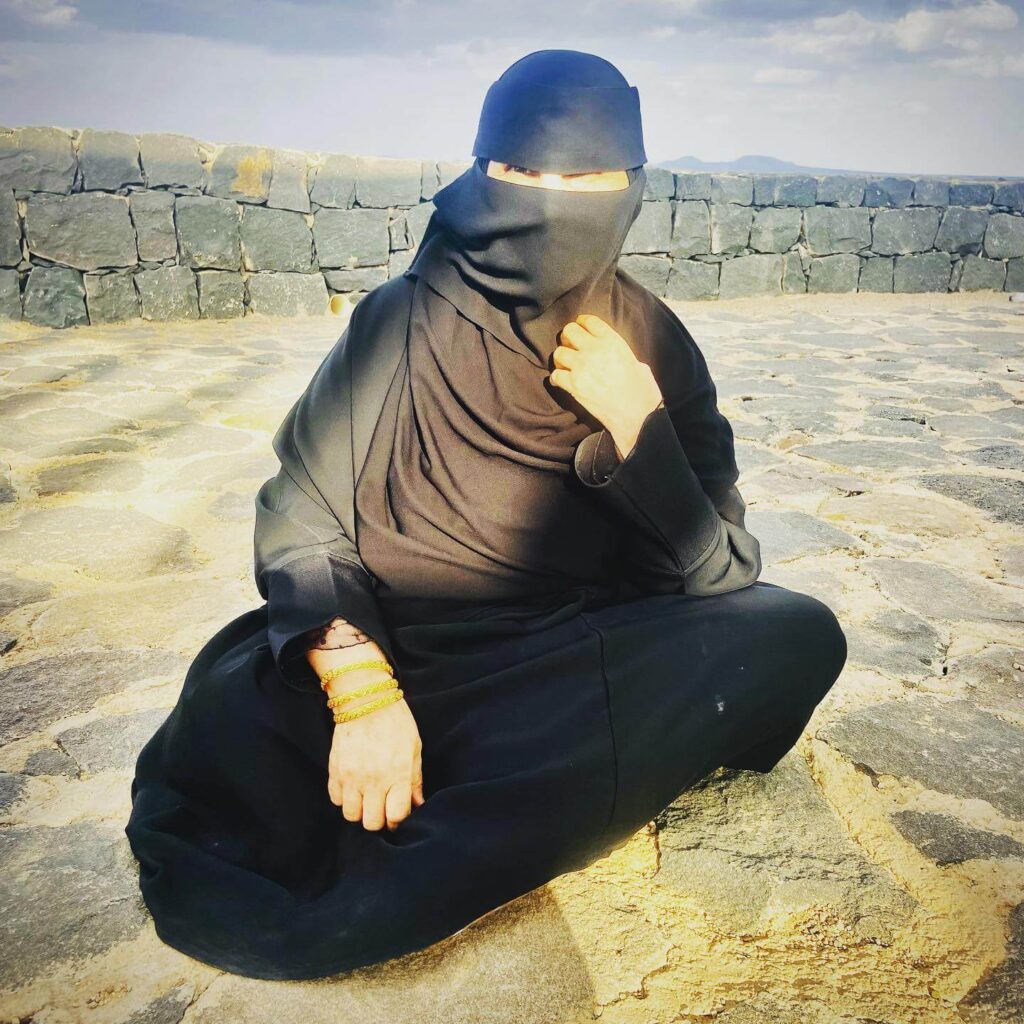
This bizarre episode in my journey began with a spontaneous invitation to stay with a Saudi family but set in motion a two-week period of surveillance culminating in my riding precariously down the wrong side of a Jeddah highway to evade the latest in a series of men in unmarked vehicles inexplicably following me.
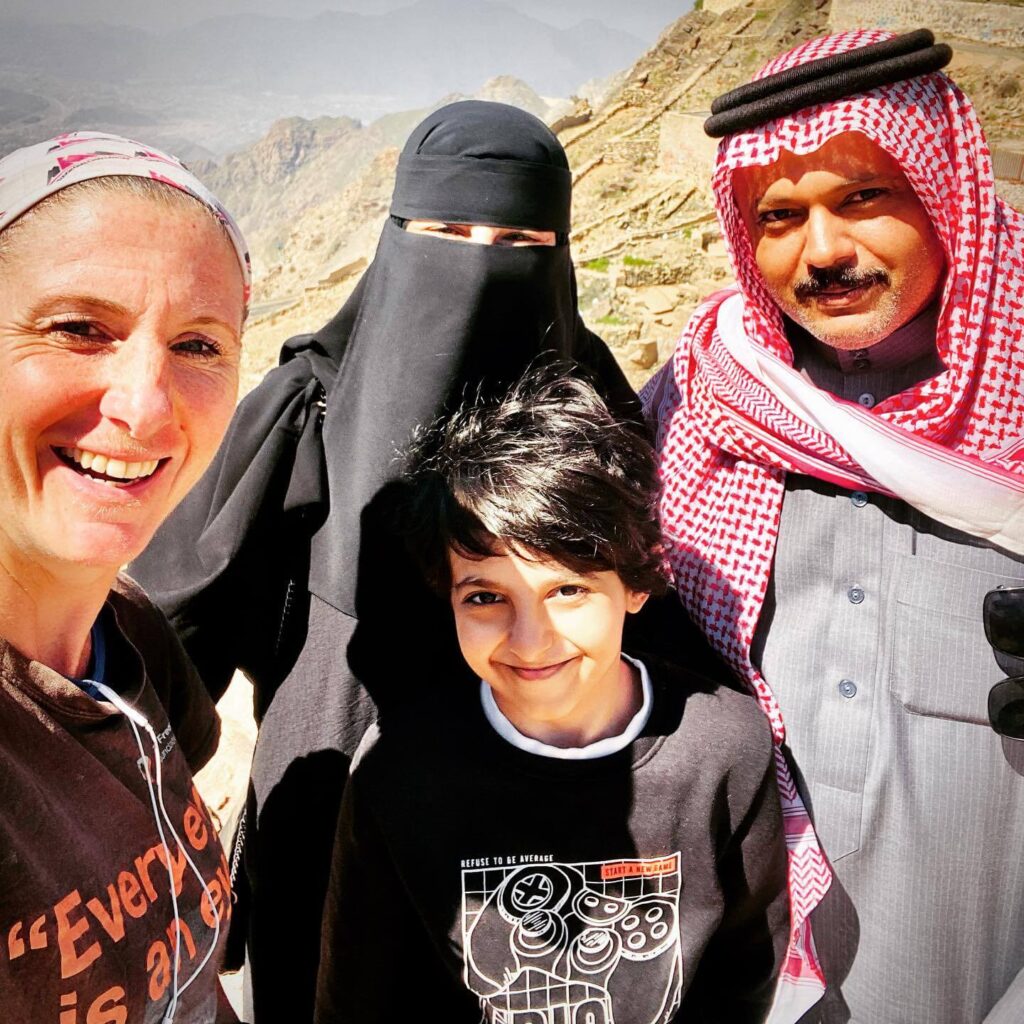
Though I reported these cars to traffic cops, at military checkpoints, and by calling 911, I never got to fully understand who they were or why they were watching me.
I hope the Saudis will settle on a less invasive way to manage tourists’ safety.
Let’s charitably assume this surveillance was intended for my ‘protection’, in which case I’m left with an uncomfortable dichotomy.
Now in touristy Jordan and subject to harassment once more, I’m nostalgic for the time I was viewed as haram.
“But if it is a choice between protected and safe or free and vulnerable, I choose liberty and the great privilege that is the freedom of independent travel.“
Hels on Wheels
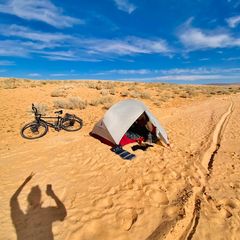
And, last but not the least, my cordial thanks to @steven The Cyclist Guy for inspiring this piece. I hope it will encourage more cyclists to bike-touring, and more bike-tourers into Saudi Arabia.
About Hels On Wheels
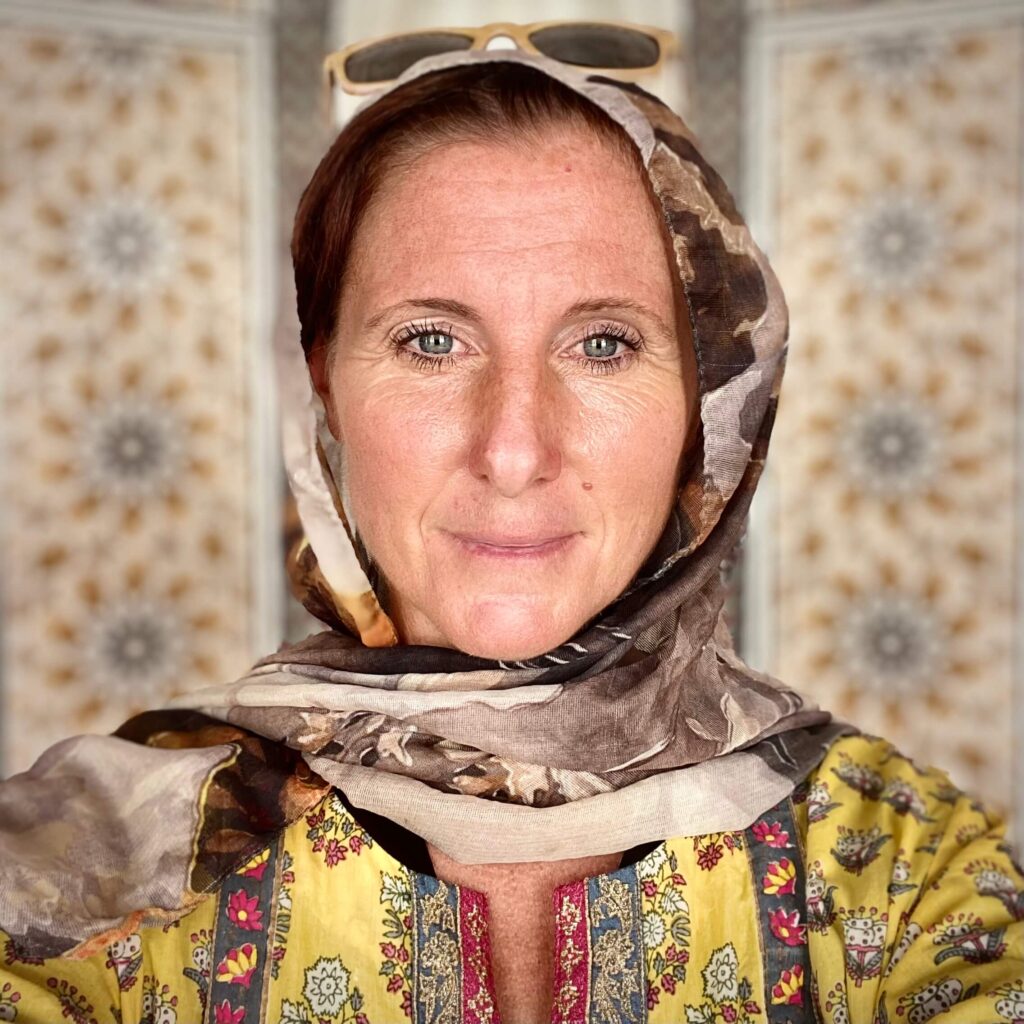
Hels On Wheels aka Helen Dainty is a full-time global hobo cycling around the world on a budget of AU$ 100 per week. She left the UK in 2004 and has been living out of a backpack ever since.
After teaching English in South Korea and working in fundraising, she took up bicycle touring in Australia in 2016. Since then, she has completed ambitious tours across Australia, the UK, Europe, Middle East, and has logged over 72,924kms in 6 years.
She is now travelling through the Middle East. To get her real-time update you can follow her profile on Instagram or YouTube or Facebook.
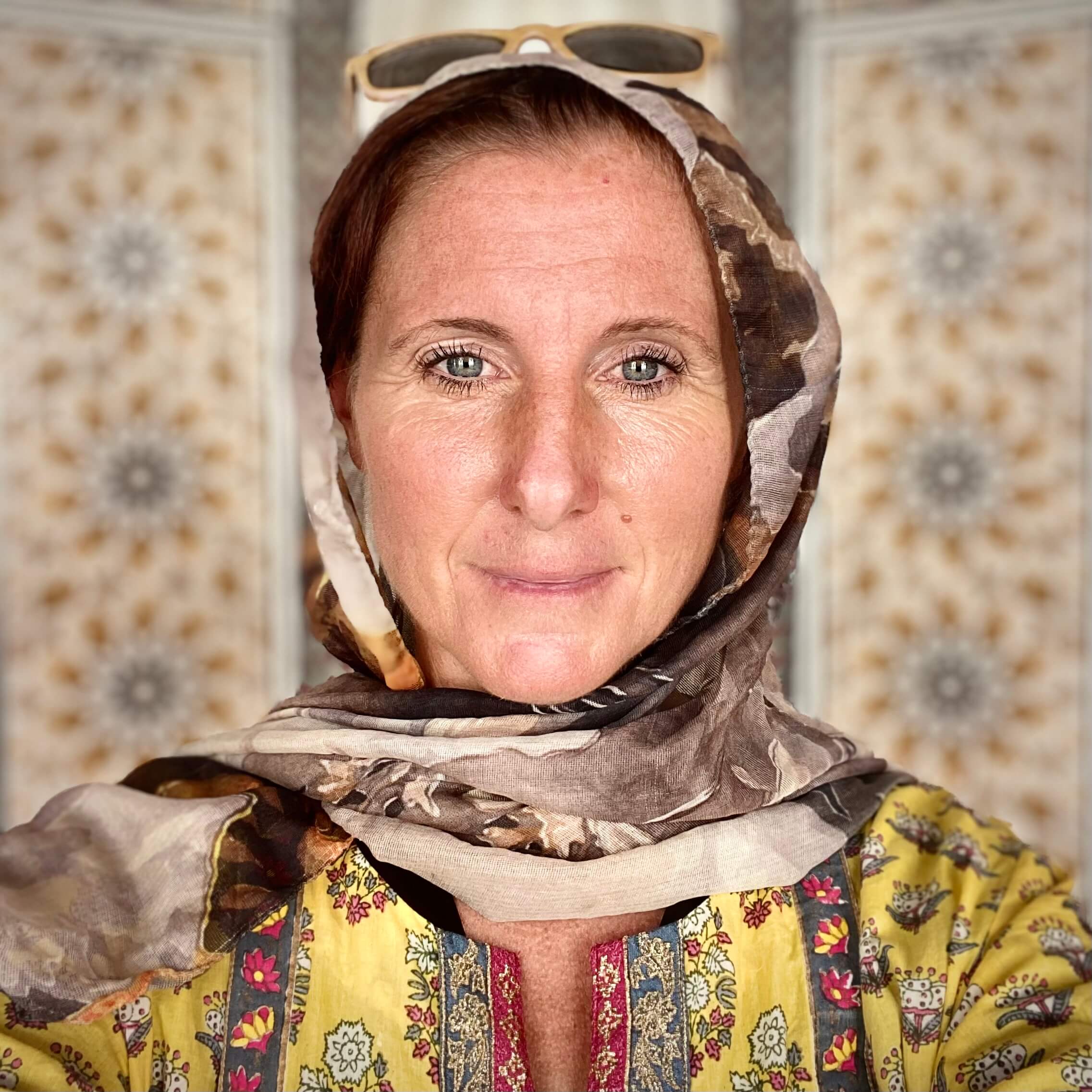
Hels On Wheels aka Helen Dainty is a full-time global hobo cycling around the world on a budget of AU$ 100 per week. She left the UK in 2004 and has been living out of a backpack ever since.


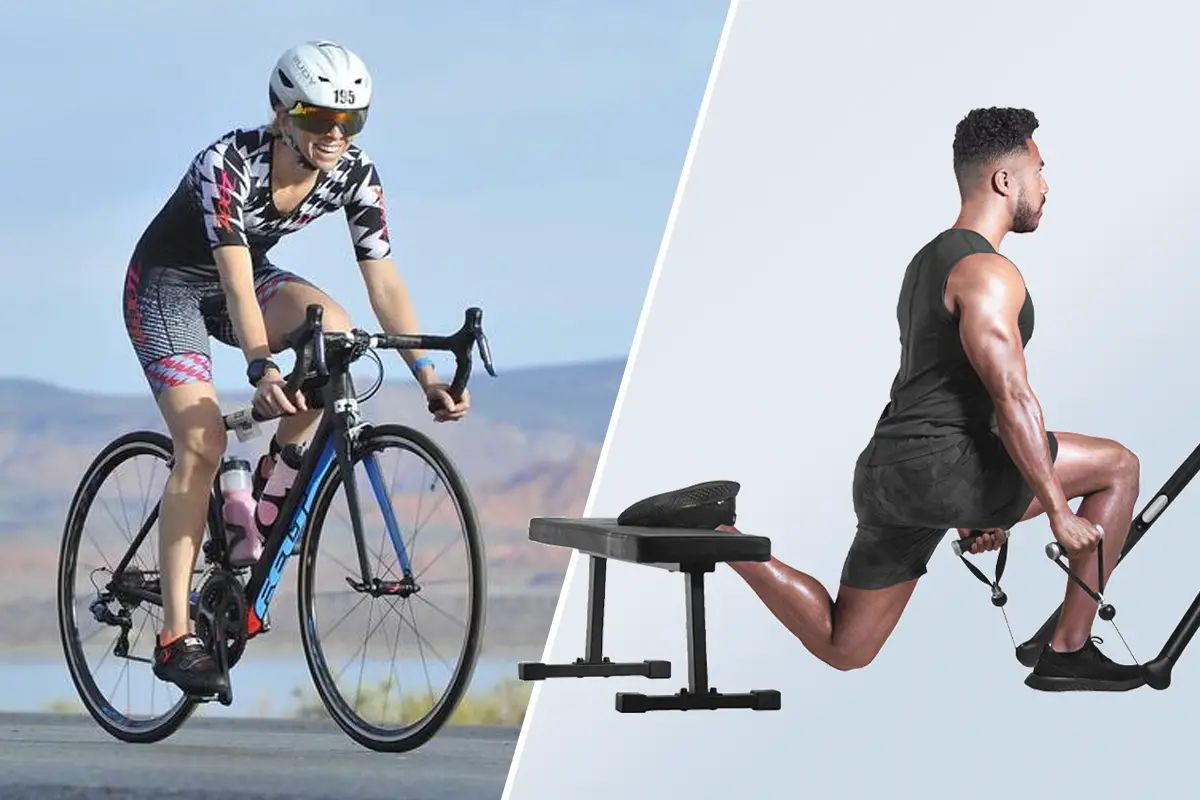


One response to “Solo Sister Cycles Saudi Arabia: Riding Against Stereotypes!”
[…] I moved from Scotland to Macon in 2011, I would have never imagined that I would become such a keen cycling enthusiast in an area normally reputed for its wine and its […]